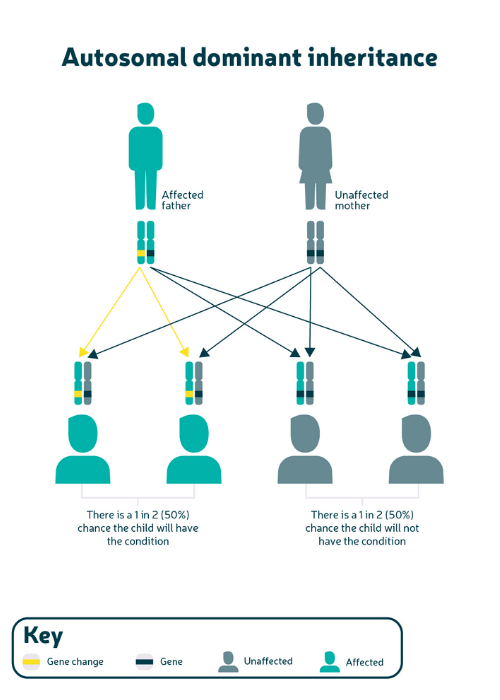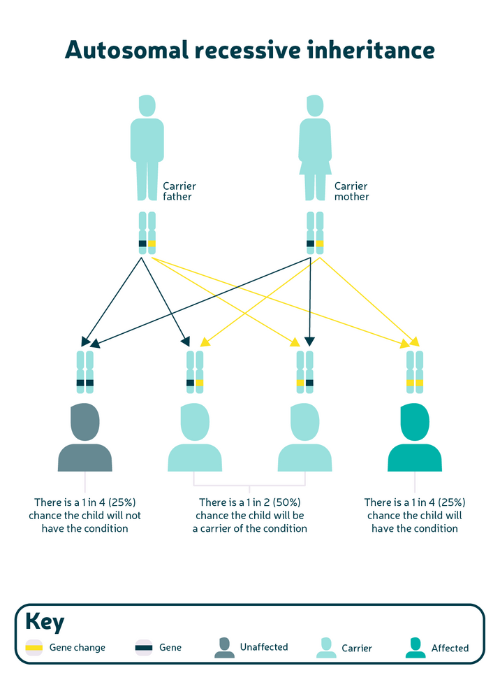MAP and FAP
FAP
Familial adenomatous polyposis (FAP) is a rare genetic condition. People with FAP have a large number of growths (polyps) called adenomas, in the lining of the bowel. If the polyps are not removed, there’s a very high chance of developing bowel cancer.
Less than 1 in 100 (1%) bowel cancer cases are caused by FAP.
Every cell in your body contains genes that act like instructions, to keep you healthy. If a gene is changed, the instructions may not be correct and the body may act differently. A changed gene can also be called a variant, mutation, gene fault or gene error.
FAP is caused by a change in a gene called APC. The APC gene helps to stop polyps from developing. If the APC gene is changed, polyps are more likely to develop. This can lead to bowel cancer.
Only one copy of the changed gene needs to be inherited for a person to have FAP. This is called autosomal dominant inheritance (see diagram). Most people who have FAP inherit the changed gene from one of their parents. However, FAP isn’t always passed on from a parent. About 1 in 4 (25%) of cases are caused by a new change in the APC gene.
If you have FAP, there’s a 1 in 2 (50%) chance of your children, brothers and sisters having it too.
If you have FAP your surgeon may advise removing all of the colon and sometimes the rectum as well. This is to prevent you getting bowel cancer. Your doctor will talk to you about the best type of surgery for you and the best time for you to have it.

MAP
MUTYH associated polyposis (MAP) is similar to FAP, but patients usually have fewer polyps in the bowel. MAP is also rare and is linked to less than 1% of all bowel cancers.
MAP is caused by a change in a gene called MUTYH. The MUTYH gene helps to stop polyps from developing. If the MUTHY gene is changed, polyps are more likely to develop. This can lead to bowel cancer.
MAP is passed down through a family in a different way to FAP. To have MAP, you must inherit two copies of the changed gene – one from each of your parents. This is called autosomal recessive inheritance (see diagram). Your parents may not have MAP themselves but may carry one copy of the changed gene.
It is recommended that people with MAP have regular colonoscopies, starting at age 18-20.
If you have MAP, your surgeon may advise removing all the colon and sometimes the rectum as well. This is to prevent you getting bowel cancer. Your doctor will talk to you about the best type of surgery for you and the best time for you to have it.

Fertility
If you’re planning to start a family, you may have questions about the risk to your children. Your genetics team will be able to answer these. They will also be able to discuss other fertility options with you. The Human Fertilisation and Embryology Authority have more information about options available to you.
Support for you
- Polyposis patient is an online support group for people with polyposis syndromes.
- St Marks Polyposis Registry supports people who have a polyposis condition, and their relatives.
- The Ileostomy and Internal Pouch Association provides support and information to people who have had their colon removed.
Updated: September 2025
Next review: September 2028

We're accredited as a Trusted Information Creator by the Patient Information Forum. This means the way we write our resources has been independently assessed as health information you can trust.
